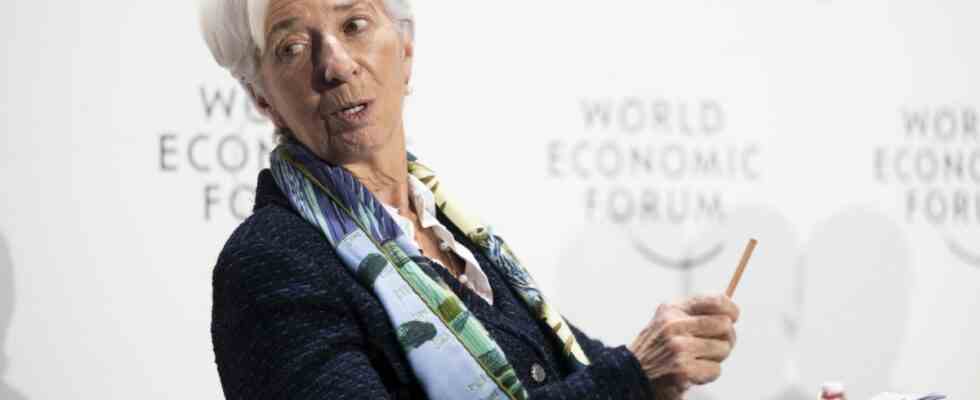At her first major public appearance this year, the head of the European Central Bank (ECB), Christine Lagarde, promised not to let up in the fight against high inflation. “Inflation is way too high,” Lagarde said on Thursday at the World Economic Forum in Davos. “We will stay the course until we have stayed in the restrictive zone long enough to bring inflation back to 2 percent in time.”
In other words, the ECB will continue its monetary policy course with further interest rate increases this year. The central bank has raised interest rates four times since the summer, most recently by half a percentage point in December. At that time, Lagarde had already signaled further interest rate hikes of 0.5 percentage points each after the interest rate meeting. The intervention of some of the ECB’s central bankers, who had been quietly mulling the possibility of reducing the pace of tightening to 25 basis points at the March meeting, should therefore be off the table for the time being.
In Davos, Lagarde received a lot of support for her plan, including from Deutsche Bank boss Christian Sewing, with whom she discussed the prospects for Europe’s economy on Thursday. “The ECB has done the right thing since the summer,” says Sewing. The worst that could happen is not getting inflation under control. “Inflation like this is poison for the economy,” he says. He does not see that the ECB is in danger of overdoing it with interest rate hikes, nor do his fellow panellists: EU Trade Commissioner Valdis Dombrovskis, Dutch Prime Minister Mark Rutte and Croatian Prime Minister Andrej Plenković.
Lagarde makes Sewing a little bit happier
Rather, they are unitedly optimistic that Europe could avoid a recession in 2023. With all the current concerns and needs, however, it should not be forgotten that now is the right time to decisively advance the digital and green transformation, and to do it quickly, as Lagarde says. Half a trillion euros will be needed for this by 2030. And then she says a sentence that makes Christian Sewing in particular visibly happy: The capital market union must finally move forward decisively, seriously and quickly.
This is about removing bureaucratic hurdles between the individual EU countries in order to give companies more opportunities to raise money on the capital market. Loans and financing in Europe – in contrast to the USA – have so far mainly been granted by banks. The EU Commission’s plans for a capital markets union have been on the table since September 2015, but implementation is faltering.
According to Lagarde, “public funds will not be sufficient to finance the investments” that are necessary for the green and digital transformation. Rather, equity is the best way to channel money into the sectors that require innovation. “If tax rules are such that they encourage debt rather than equity, how do we mobilize enough equity?”
A plea that plays into Sewing’s hands. The capital markets union is “the cheapest economic engine we have in Europe”. And he goes even further: “Without them, the Green Deal will not happen.” In addition, many European companies urgently need more venture capital, especially those that will help shape ecological change in the coming years and decades. “Even these people will not come without the capital markets union.”

